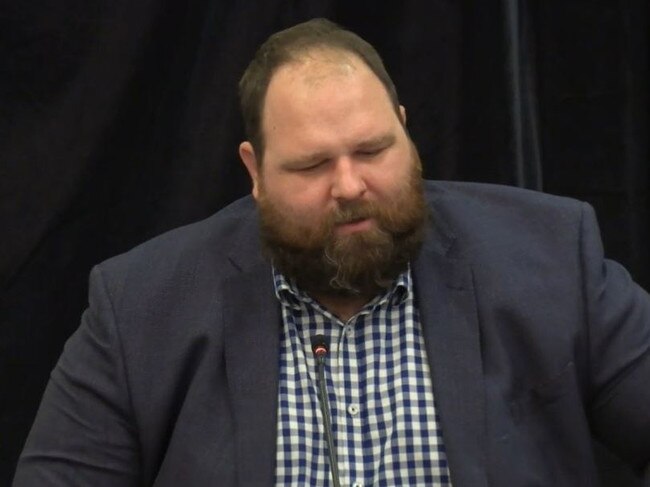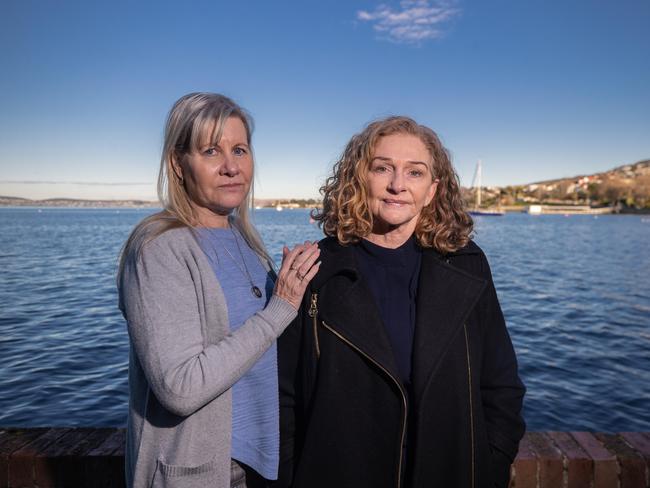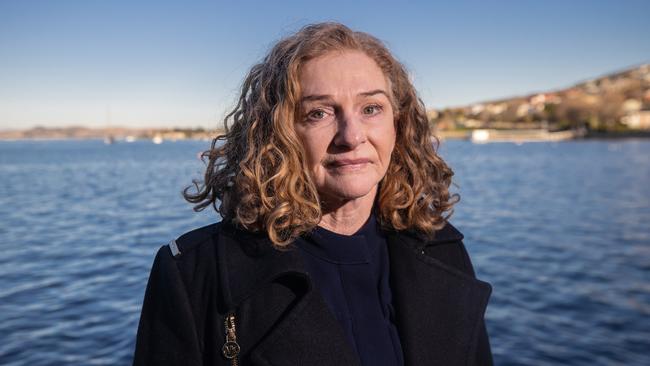‘Utterly broken’: Soldier says he ‘deteriorated’ after peacekeeping deployment to Egypt
A former soldier has told the Royal Commission into Defence and Veteran Suicide in Hobart how his mental health unravelled after a peacekeeping deployment to Egypt.
Police & Courts
Don't miss out on the headlines from Police & Courts. Followed categories will be added to My News.
THE year that William McCann was deployed to Egypt was the year that changed his life.
It was 2015, and the signals officer found himself on a peacekeeping mission in Sinai for the multi-nation Operation Mazurka.
The pre-deployment course given by the Australian Defence Force “did not prepare us for what we experienced”, he said.
Mr McCann, giving evidence before the Royal Commission into Defence and Veteran Suicide in Hobart on Tuesday, said the course focused mainly “on how much fun we could have by being able to see the sights of Egypt, and beers and barbecues – things like that”.
The reality of Operation Mazurka was vastly different.
“It’s been going for over 30 years now, and it’s safe to say that a considerable level of complacency had developed within the ADF and within the multinational forces … tasked with observing the peace treaty in the Sinai,” Mr McCann said.
“When we deployed, we realised that we were … in a deteriorating situation as Islamic State elements in that country increased their hostilities against the Egyptian forces. And as a result, we as a peace preserving force, were potentially caught in that crossfire.”
He said there were multiple instances when shrapnel penetrated the operation’s north camp – which he said wasn’t well equipped at the time, with weatherboard accommodation and a mere chain link fence perimeter, no different than a tennis court.
Mr McCann said his deployment was given heavy modular combat body armour, which didn’t fit properly into vehicles, and that they didn’t have enough weapons during rotation periods.
“It was a surreal experience in a sense that every day we were experiencing alarms, rounds firing into our camp. This escalated to a point that we started seeing direct attacks on our camp,” he said.

Mr McCann said his flight or fight response was triggered by the sound of weapons firing – leaving him frozen.
“It’s something that I struggle with immensely, is this sort of shame, guilt and embarrassment around how I react in a situation where essentially I became so overcome with the noise of rounds landing, rounds firing, and alarms constantly sounding … that my flight or fight triggered,” he said.
“I froze, I don’t know for how long.”
Mr McCann said he wasn’t offered a debriefing, and that instead the deployment just “carried on”.
“Once I returned from the deployment, I started to deteriorate,” he said.
“My motivation was gone. I just didn’t have that spark I once had.”
By the time he was diagnosed with post traumatic stress disorder in 2018, he felt “utterly broken” and felt he’d shown “weakness” given his diagnosis had originated in a non-war, peacekeeping operation.
He was afraid of being seen as a “linger” – a colloquial ADF term for a “malingerer”.
Mr McCann said he wanted to speak before the royal commission as he’d been “lucky” to have support from the ADF and his family.
“Throughout my time, dealing with a mental condition and post deployment, I’ve suffered with almost persistent suicidal ideation, culminating in points where I actively planned my suicide,” he said.
“So I felt that if I can be in that spot, those who don’t have the good fortune that I have, must be in a hell of a lot worse place. So whatever insights I can give, hopefully can help.”
The royal commission hearing in Hobart will conclude on Wednesday, before it hands its interim report to the Governor-General.
How ‘widow maker’ aircraft exposed department as a ‘monster’
MADONNA Paul’s husband knew there was something wrong with the aircraft he worked on in the Royal Australian Air Force.
That aircraft – the Nomad – was known as the “widow maker”.
Tragically, as Ms Paul explained to the Royal Commission into Defence and Veteran Suicide in Hobart on Monday, that aircraft ultimately – albeit indirectly – took her husband’s life too.
Ms Paul, who now lives in Tasmania, said her husband Michael took his own life in 2004 in far-north Queensland after a 10-year military career, in which he worked as an aircraft maintenance fitter.
“He’d come home and say this aircraft is dangerous, it shouldn’t be in the air,” Ms Paul said.
“He couldn’t understand how dangerous that aircraft was and it was still able to be flown and still operated.
“Its nickname was the widow maker, and everybody knew it.”
While Michael reported his concerns to his superiors, it continued to be used from their base at the Oakey Army Aviation Centre.
Then one day in 1991, Ms Paul was at work when she was told a Nomad had gone missing.
While she got a call later that afternoon saying Michael wasn’t on the plane in question, four people had died – including a fellow aircraft fitter that he’d worked alongside.
Ms Paul said the Australian Defence Force provided no support.
That night, his colleagues went to the pub but Michael said he “couldn’t stomach it” and “felt like he wanted to vomit, so he left”.
“And that’s all I ever heard of anything about pulling people together,” Ms Paul said.
After that, her husband would “come home from work and sit in the dark”, with his moods becoming “erratic”.

A social worker for the Air Force told them they just had “marriage problems” and needed to attend marriage counselling.
Meanwhile, Michael withdrew from parenting and his social life, became aggressive, and was unable to cope with noise or the sound of children playing.
After the couple had their second child, Michael left his military career and returned to what he’d done before – working as a boilermaker – and for a while he enjoyed his return to civilian life.
But things unravelled when he needed to travel on a work trip to Rockhampton on a light aircraft.
The plane hit a storm and the passengers on-board were told to brace.
“He had a complete breakdown after that,” Ms Paul said.
“He said that he fully had the whole feeling of what would have happened to those four men.”
She said he became “very erratic”, with paranoia and hypervigilance.
After a domestic violence incident, her husband was hospitalised and put on medication that he had a “very strong reaction to”.

With the couple’s children seriously affected, Michael packed up his truck and set up camp at a national park in Townsville.
Things stabilised for a while, with Michael receiving treatment as a veteran from a psychiatrist.
The week before he died, his medication was changed – and a psychiatrist didn’t seem to pick up that Michael was planning suicide.
Before he died, he withdrew a claim against the Defence Force because of the costs it could have left on his family.
Ms Paul said she had since suffered “systemic abuse” at the hands of the Department of Veterans’ Affairs – with the Department of Veterans’ Affairs refusing to reinstate the claim, and a delegate telling her she didn’t “deserve any compensation because mental illness just runs in your family”.
“This department is always the monster in the room,” she said.





